
Innsbruck: The Jewel of the Austrian Alps
Nestled in the heart of the Austrian Alps, Innsbruck is a city that effortlessly combines the vibrancy of urban life with the charm of a mountain village. Known for its stunning natural beauty, Innsbruck is surrounded by majestic peaks, making it a paradise for outdoor enthusiasts. Whether you're a skier, hiker, or simply someone who loves breathtaking views, you'll find something to love here. The city's rich history dates back to the Roman era, and this legacy is evident in its well-preserved architecture and cultural landmarks. The Old Town, or Altstadt, is a maze of narrow, cobbled streets filled with medieval buildings, including the iconic Golden Roof, a symbol of Innsbruck. Museums, art galleries, and theaters offer a deep dive into the city's cultural heritage, ensuring that history buffs have plenty to explore. Innsbruck is not just about history and nature. The city boasts a vibrant dining scene, from traditional Tyrolean cuisine to international flavors. Local markets and cozy cafes provide a taste of authentic Austrian hospitality. And for those who enjoy a bit of retail therapy, Innsbruck offers a mix of high-end boutiques and charming local shops. With its unique blend of natural beauty, historical richness, and modern amenities, Innsbruck is a destination that promises a memorable experience for every traveler.
Local tips in Innsbruck
- Visit the Nordkette Cable Car for breathtaking views and easy access to hiking trails.
- Explore the Old Town early in the morning to avoid crowds and get the best photos.
- Try the local Tyrolean cuisine at a traditional restaurant for an authentic taste of the region.
- Purchase an Innsbruck Card for free entry to many attractions and unlimited public transport.
- Check the local calendar for festivals and events to experience Innsbruck's vibrant culture.
Neighbourhoods in Innsbruck
Innsbruck: The Jewel of the Austrian Alps
Nestled in the heart of the Austrian Alps, Innsbruck is a city that effortlessly combines the vibrancy of urban life with the charm of a mountain village. Known for its stunning natural beauty, Innsbruck is surrounded by majestic peaks, making it a paradise for outdoor enthusiasts. Whether you're a skier, hiker, or simply someone who loves breathtaking views, you'll find something to love here. The city's rich history dates back to the Roman era, and this legacy is evident in its well-preserved architecture and cultural landmarks. The Old Town, or Altstadt, is a maze of narrow, cobbled streets filled with medieval buildings, including the iconic Golden Roof, a symbol of Innsbruck. Museums, art galleries, and theaters offer a deep dive into the city's cultural heritage, ensuring that history buffs have plenty to explore. Innsbruck is not just about history and nature. The city boasts a vibrant dining scene, from traditional Tyrolean cuisine to international flavors. Local markets and cozy cafes provide a taste of authentic Austrian hospitality. And for those who enjoy a bit of retail therapy, Innsbruck offers a mix of high-end boutiques and charming local shops. With its unique blend of natural beauty, historical richness, and modern amenities, Innsbruck is a destination that promises a memorable experience for every traveler.
When is the best time to go to Innsbruck?
Iconic landmarks you can’t miss
Golden Roof
Explore the Golden Roof in Innsbruck, a stunning historical landmark showcasing Tyrolean heritage with its intricate architecture and scenic surroundings.

Alpenzoo Innsbruck - Tirol
Explore the breathtaking Alpenzoo Innsbruck, an engaging wildlife experience showcasing the rich diversity of Alpine fauna amidst stunning mountain scenery.
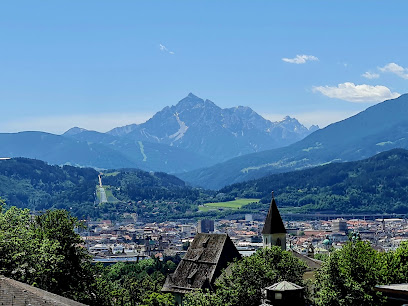
Ambras Castle Innsbruck
Discover the rich history and breathtaking beauty of Ambras Castle in Innsbruck, a Renaissance jewel nestled in the Tyrolean Alps.
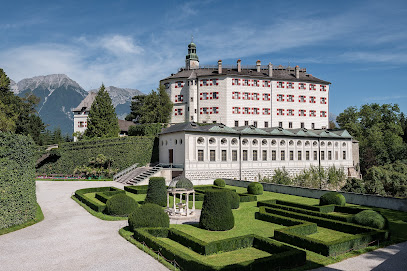
Innsbrucker Hofgarten
Explore the serene beauty of Innsbrucker Hofgarten, a tranquil garden in Innsbruck offering stunning views, unique flora, and a peaceful retreat in the heart of the city.
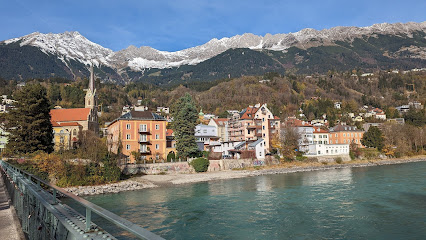
Innsbrucker Nordkettenbahnen Betriebs GmbH (Nordkette)
Explore the stunning Innsbrucker Nordkettenbahnen, a premier mountain cable car in the Austrian Alps, offering breathtaking views, hiking, and skiing adventures.
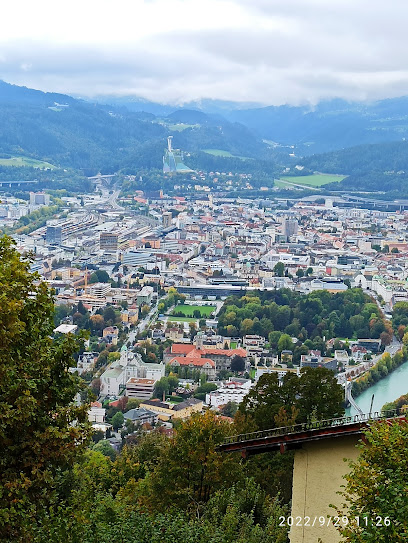
Triumphpforte
Discover the majestic Triumphpforte in Innsbruck, a historical landmark that narrates the glorious past of the Tyrol region amidst stunning alpine views.
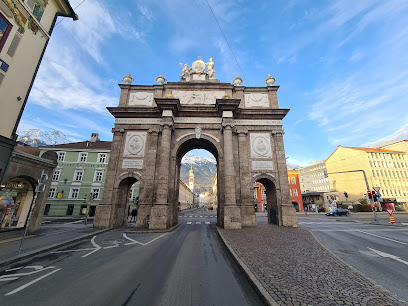
Hafelekarspitze
Explore the breathtaking Hafelekarspitze, a stunning observation deck in Innsbruck, offering panoramic views of the Alps and unforgettable outdoor adventures.
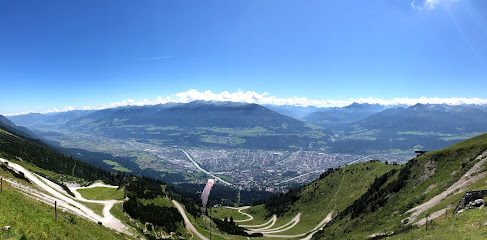
Annasäule
Discover the captivating history and stunning beauty of Annasäule, a must-visit landmark in Innsbruck, Austria.
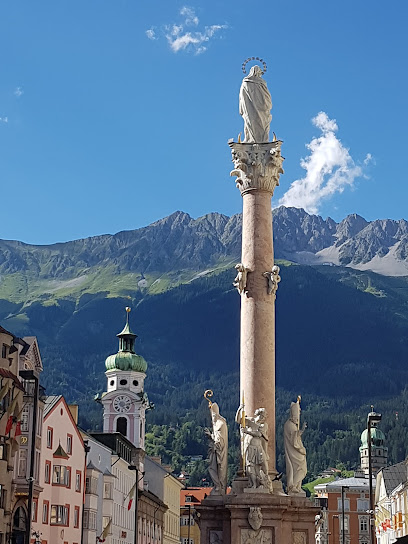
Hofburg Innsbruck
Explore the rich history and architectural beauty of Hofburg Innsbruck, a former imperial palace that showcases the opulence of the Habsburg dynasty.

Landhausplatz
Explore Landhausplatz in Innsbruck, a picturesque square blending history with modern architecture and vibrant local culture.
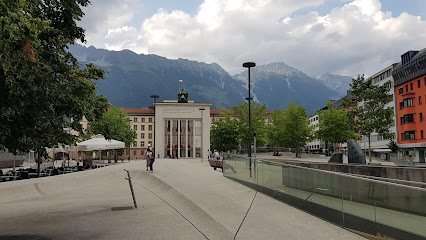
Tirol Panorama and Kaiserjäger Museum
Explore the breathtaking Tirol Panorama and Kaiserjäger Museum, a cultural landmark showcasing Tyrolean history and stunning mountain views.
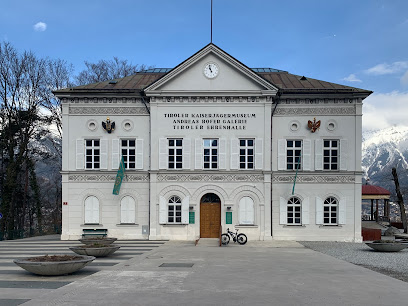
Congress Innsbruck
Discover Congress Innsbruck, a premier convention center blending modern amenities with stunning alpine views, perfect for events and conferences.
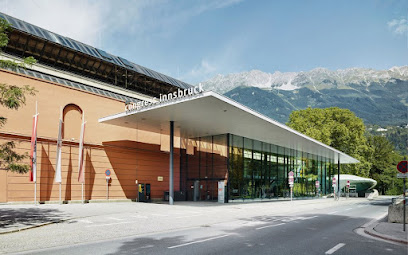
Dom St. Jakob
Discover the architectural splendor and historical significance of Dom St. Jakob, a captivating cathedral in the heart of Innsbruck.
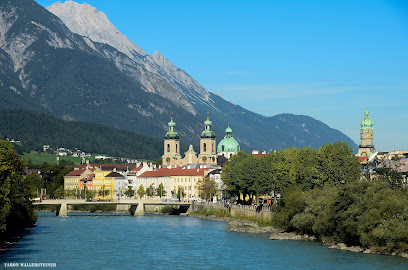
Altstadt Innsbruck
Discover the enchanting history and vibrant culture of Altstadt Innsbruck, where every corner tells a story of Austria's rich heritage.
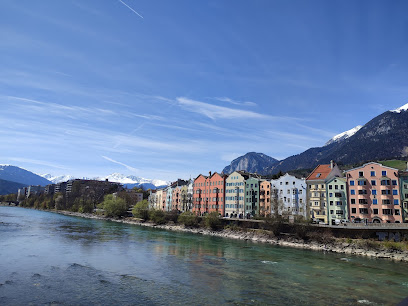
Court Church Innsbruck
Explore the Court Church of Innsbruck, a stunning Gothic masterpiece rich in history and culture, featuring Emperor Maximilian I's grand tomb.

Unmissable attractions to see
Swarovski Kristallwelten
Discover the enchanting world of crystal at Swarovski Kristallwelten, a must-visit museum and attraction in the heart of the Tyrolean Alps.
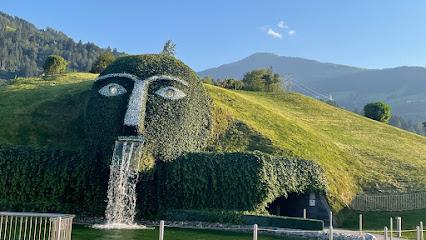
Linderhof Palace
Explore the opulent Linderhof Palace, a stunning testament to King Ludwig II's vision, set against the enchanting backdrop of the Bavarian Alps.
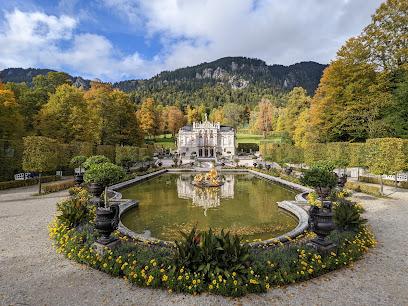
Partnachklamm
Explore Partnachklamm, a stunning gorge in Garmisch-Partenkirchen, featuring breathtaking views, hiking trails, and the power of nature in a picturesque setting.
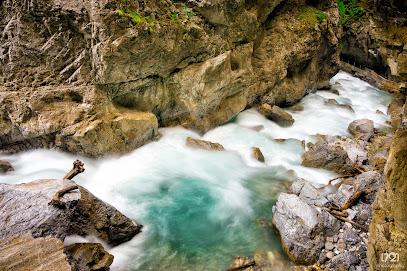
Hintertuxer Gletscher
Experience year-round skiing and breathtaking alpine views at Hintertuxer Gletscher, Austria's premier ski resort and hiking paradise.
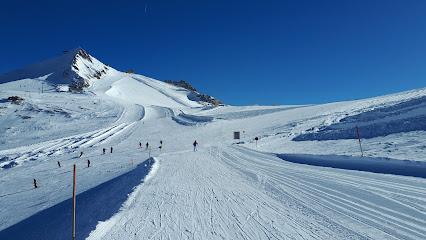
Alpenzoo Innsbruck - Tirol
Experience the breathtaking Alpenzoo Innsbruck - Tirol, where alpine wildlife thrives amidst stunning mountain views and conservation efforts.
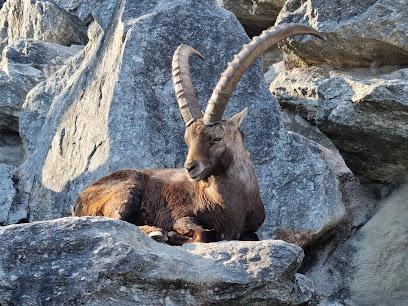
Zugspitze
Discover Zugspitze, Germany's highest peak, where stunning views and thrilling outdoor activities await in the heart of the Bavarian Alps.
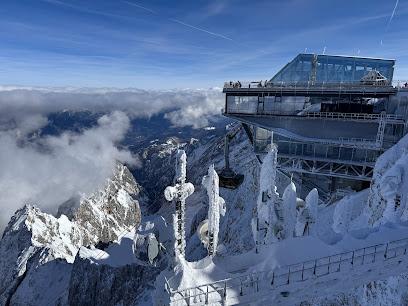
Bergisel Ski Jump
Experience the breathtaking Bergisel Ski Jump in Innsbruck, a stunning architectural wonder and a hub of winter sports history amidst the scenic Tyrolean Alps.
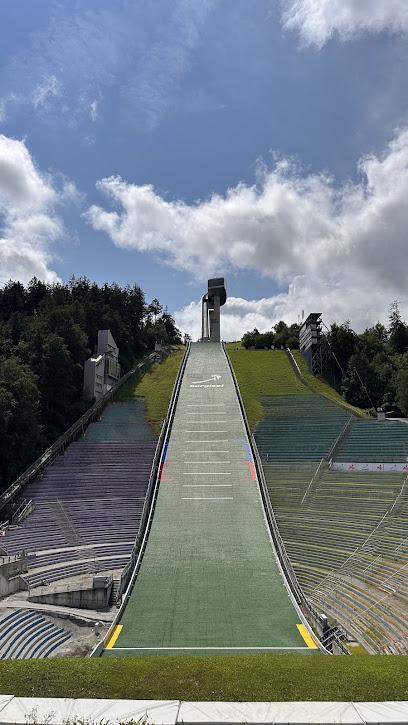
Schloss Ambras Innsbruck
Explore the historic Schloss Ambras Innsbruck, a stunning blend of Renaissance architecture, art, and breathtaking alpine views.
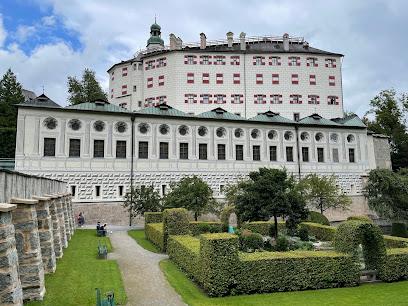
Innsbrucker Hofgarten
Experience the serene charm of Innsbruck's Hofgarten, a breathtaking garden that marries nature with history and culture in the heart of the city.
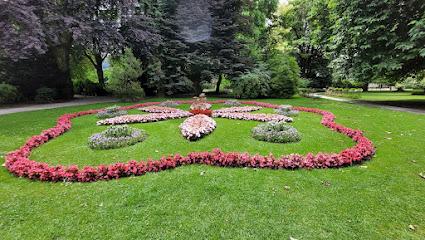
AREA 47 - Tirol
Experience adventure and relaxation at AREA 47, Tirol's premier amusement park set against the stunning backdrop of the Ötztal Alps.
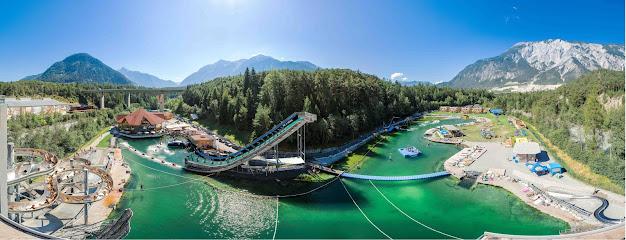
Innsbrucker Nordkettenbahnen - Top of Innsbruck
Discover the stunning scenery and thrilling outdoor activities at Innsbrucker Nordkettenbahnen, your gateway to the Austrian Alps.
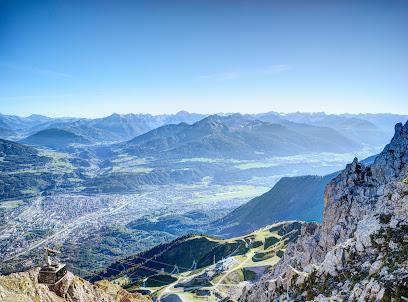
Kristall Therme trimini Kochel am See
Discover ultimate relaxation at Kristall Therme trimini Kochel am See, a premier spa in the Bavarian Alps offering thermal baths, saunas, and wellness treatments.
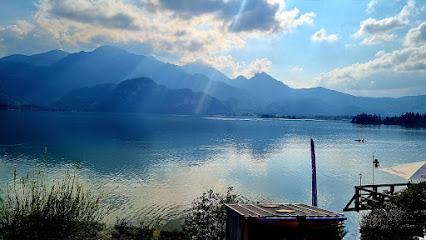
Triumphpforte
Discover the historical grandeur of Triumphpforte, Innsbruck's majestic arch celebrating heritage and culture.
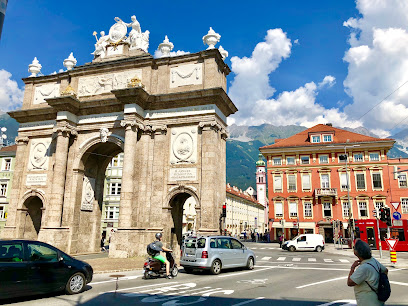
Hafelekarspitze
Experience unparalleled views from Hafelekarspitze, the perfect observation deck in Innsbruck, offering breathtaking encounters with the Tyrolean Alps.
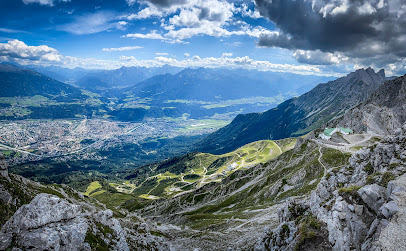
Schloss Tratzberg
Explore the stunning Schloss Tratzberg, a majestic castle in Tyrol, Austria, showcasing rich history and breathtaking architecture amidst beautiful landscapes.
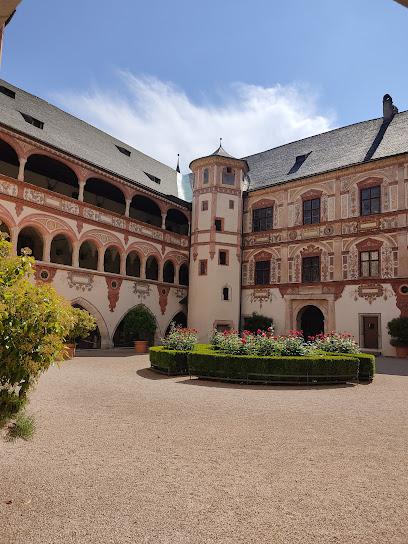
Essential places to dine
Stiftskeller
Experience authentic Austrian cuisine at Stiftskeller in Innsbruck – where tradition meets flavor in a charming setting.
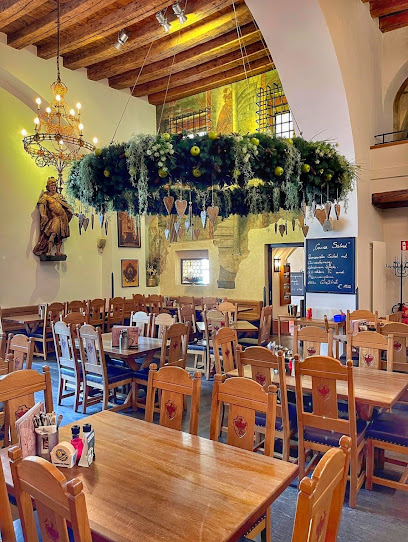
Hard Rock Cafe
Discover the essence of American dining at Hard Rock Cafe Innsbruck - where great food meets rock history in an unforgettable setting.
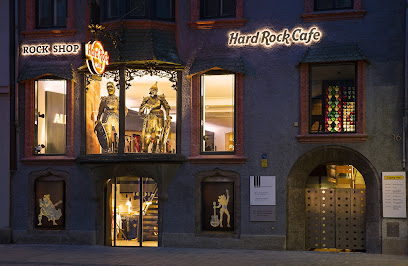
L'Osteria Innsbruck
Savor authentic Italian flavors at L'Osteria Innsbruck – where delicious food meets vibrant atmosphere in Austria's picturesque Tyrol region.
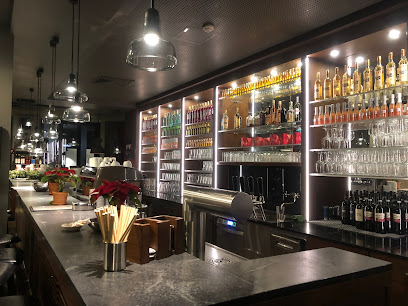
Ludwig
Discover Ludwig in Innsbruck - where gourmet hamburgers meet vibrant atmosphere for an unforgettable dining experience.
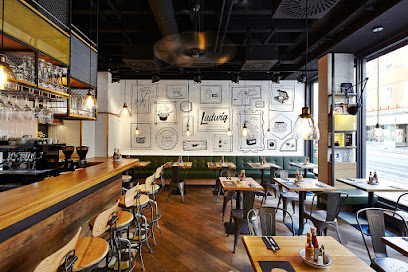
Machete - Burrito Kartell
Experience flavorful soul food at Machete - Burrito Kartell in Innsbruck, where every bite is crafted with passion and served with warmth.
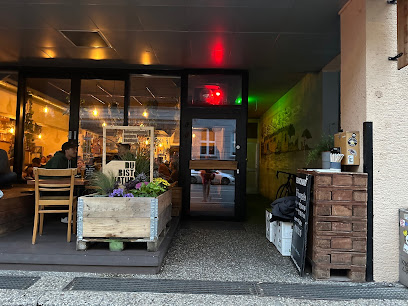
Restaurant Seegrube
Discover breathtaking views and exquisite Austrian cuisine at Restaurant Seegrube in Innsbruck's stunning alpine setting.
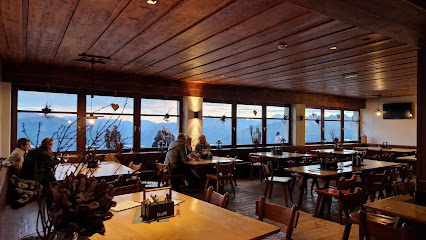
Glorious Bastards Innsbruck
Experience culinary excellence at Glorious Bastards Innsbruck - where modern flavors meet vibrant ambiance in the heart of Austria.
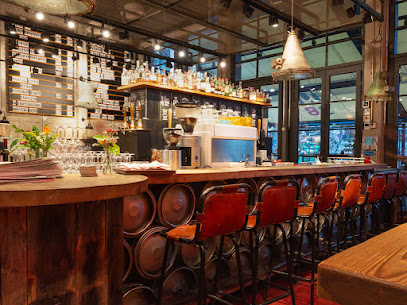
Die Pizzerei
Experience authentic Italian flavors at Die Pizzerei, where every dish tells a story of tradition and passion.
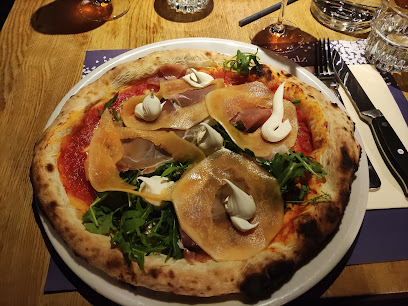
AKROPOLIS
Experience authentic Greek cuisine at Akropolis in Innsbruck - where tradition meets taste in a vibrant atmosphere.
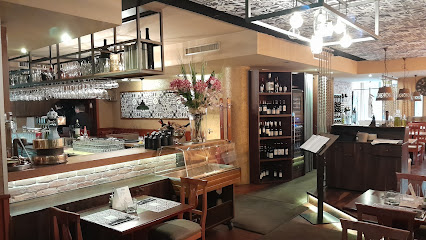
Mamma Mia
Experience authentic Italian cuisine at Mamma Mia in Innsbruck – where every dish tells a story.
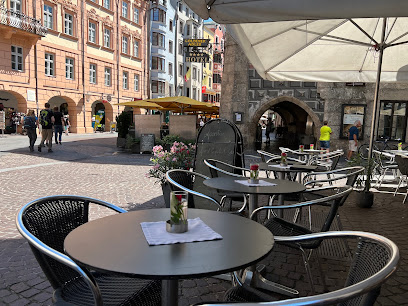
Restaurant Goldener Adler Innsbruck
Experience authentic Austrian cuisine at Restaurant Goldener Adler in Innsbruck—where tradition meets taste in a cozy family-friendly setting.

Trattoria-Pizzeria Due Sicilie
Savor authentic Italian cuisine in Innsbruck at Trattoria-Pizzeria Due Sicilie - where every dish is a celebration of flavor.
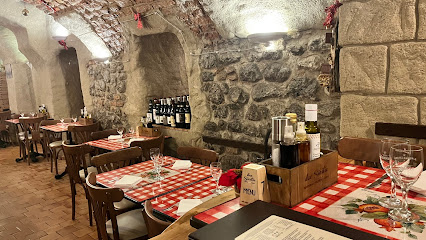
Gasthaus Goldenes Dachl
Discover authentic Tyrolean cuisine at Gasthaus Goldenes Dachl in Innsbruck - where tradition meets taste!
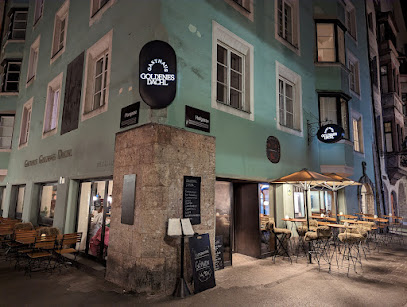
FloJos
Experience exquisite steaks and vibrant nightlife at FloJos, the top restaurant and bar in Innsbruck.
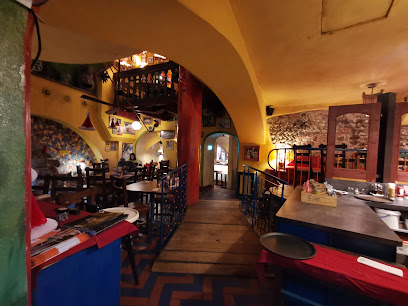
Himal Nepali Kitchen Restaurant
Experience the vibrant flavors of Nepal at Himal Nepali Kitchen Restaurant in Innsbruck – where every dish tells a story.
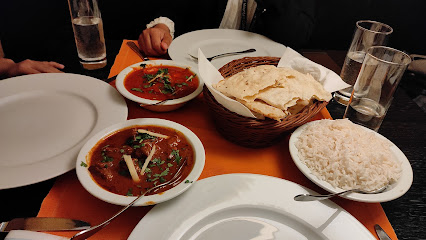
Markets, malls and hidden boutiques
Sillpark
Discover Sillpark in Innsbruck: A shopping paradise with diverse stores, delightful dining, and a vibrant atmosphere in the heart of the Alps.
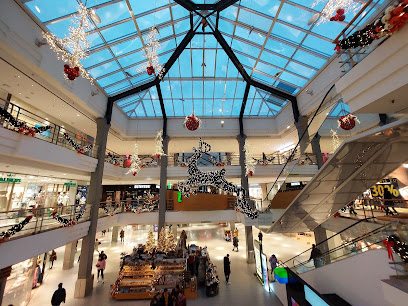
Kaufhaus Tyrol
Experience the best of shopping in Innsbruck at Kaufhaus Tyrol, where local charm meets international style.
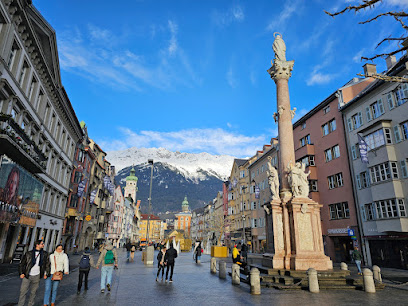
RathausGalerien
Explore the bustling RathausGalerien in Innsbruck – a shopping and dining paradise that captures the essence of the city.
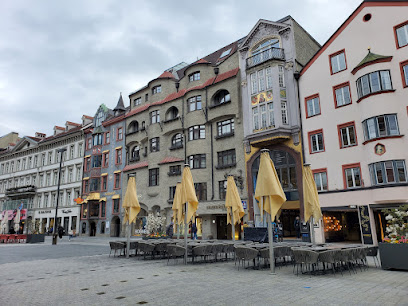
Shopping Center West
Discover a world of shopping delights at Shopping Center West in Innsbruck, where modern retail meets the charm of the Alps.
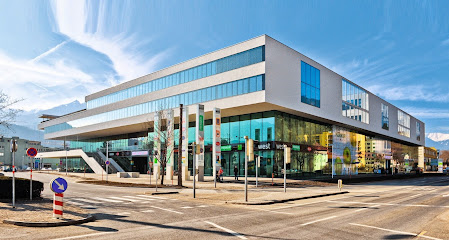
Speckeria
Experience the unique charm of Speckeria, Innsbruck's favorite store for local delicacies and handcrafted souvenirs.
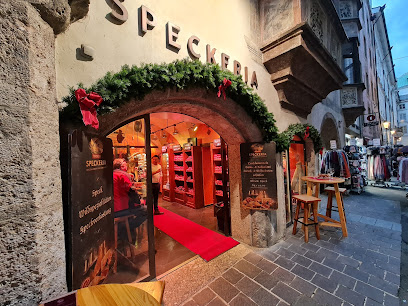
Flying Tiger Copenhagen
Explore the whimsical world of Flying Tiger Copenhagen in Innsbruck, where creativity meets affordability in a charming gift shop experience.
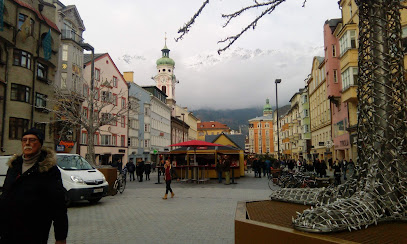
Lindt Chocolate Boutique
Discover the exquisite world of chocolate at the Lindt Chocolate Boutique in Innsbruck, where every bite is a taste of luxury and indulgence.
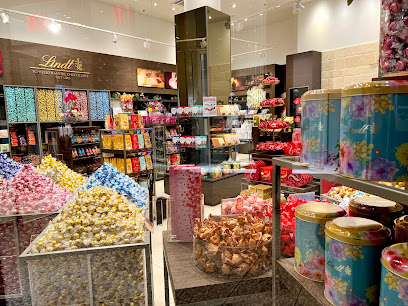
House of Tea & Coffee
Discover the charm of Innsbruck at the House of Tea & Coffee, a delightful haven for tea and coffee lovers, offering a serene escape and exquisite brews.
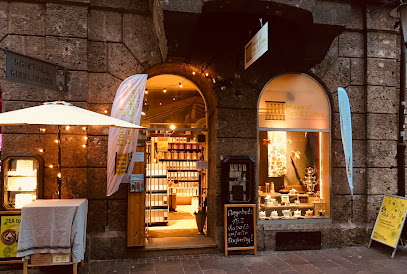
NOWHEREVINTAGE Innsbruck
Uncover unique vintage fashion treasures at NOWHEREVINTAGE Innsbruck, where every piece has a story and style awaits.
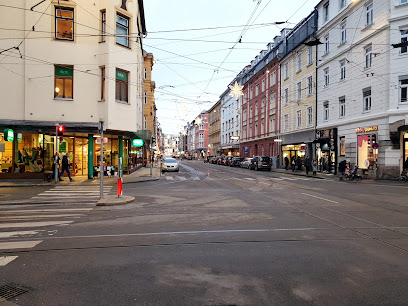
Tirol Shop Innsbruck
Explore the essence of Tyrolean culture at Tirol Shop Innsbruck, featuring authentic clothing and unique souvenirs in a charming setting.
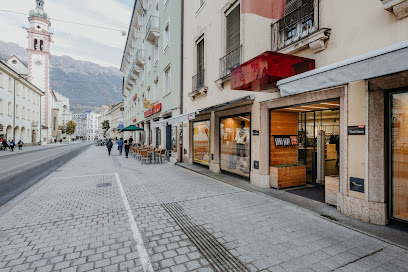
Patagonia Innsbruck
Explore sustainable outdoor apparel in the heart of Innsbruck at Patagonia Innsbruck, where quality meets eco-consciousness.
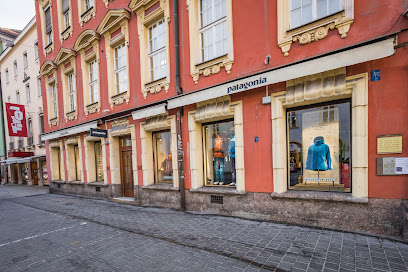
Tirol Geniessen
Explore Tirol Geniessen in Innsbruck for a unique blend of local gifts and exquisite spirits, capturing the essence of Tyrolean craftsmanship.
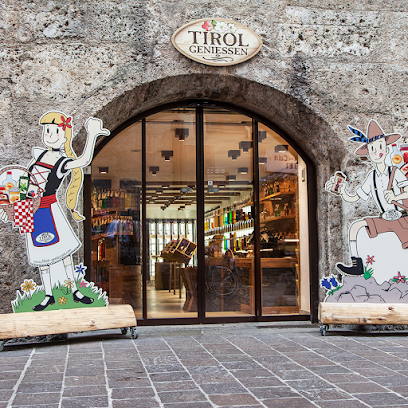
TIROLER EDLES
Explore Tiroler Edles in Innsbruck for unique handcrafted gifts that capture the essence of Tyrolean culture and craftsmanship.
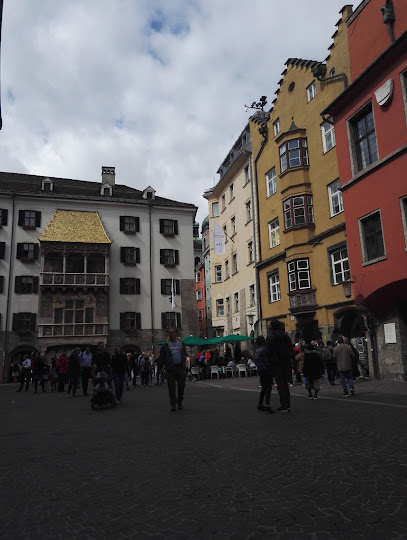
Weltladen Innsbruck Leopoldstraße
Explore Innsbruck's unique Weltladen for local fashion treasures and artisanal chocolates, a delightful blend of style and sweetness.
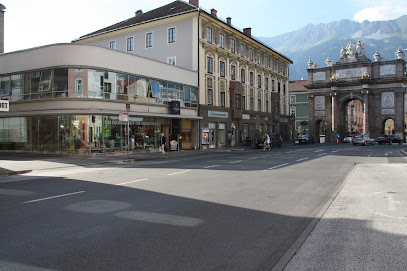
G-Star RAW Store
Explore cutting-edge denim and fashion at G-Star RAW Store in Innsbruck, where style meets sustainability.
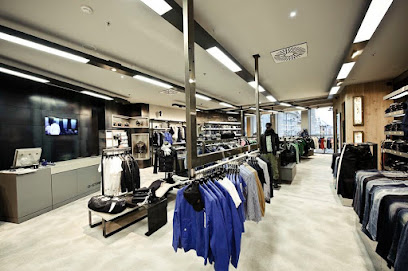
Essential bars & hidden hideouts
The Galway Bay
Discover the essence of Ireland at The Galway Bay, an authentic pub in Innsbruck offering traditional dishes, vibrant drinks, and a warm atmosphere.
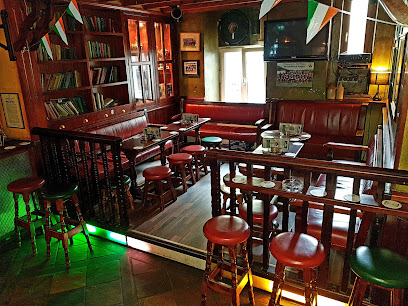
Limerick Bills Irish Pub
Experience the heart of Ireland at Limerick Bills Irish Pub, an inviting retreat for tourists in Innsbruck with a vast whiskey selection and hearty Irish fare.
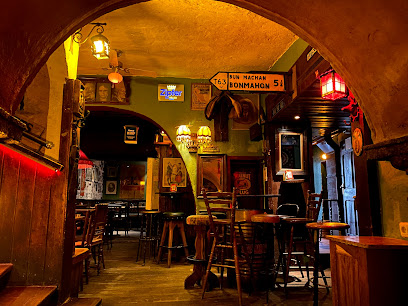
Liquid Diary
Experience the finest cocktails and vibrant nightlife at Liquid Diary, Innsbruck's premier bar for locals and tourists alike.
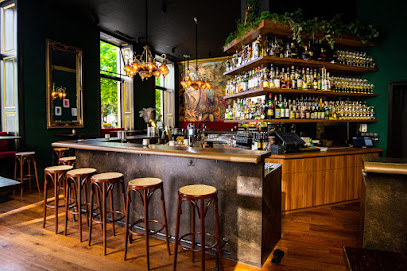
M+M Bar - die Cocktailbar in Innsbruck
Discover the lively M+M Bar in Innsbruck, a cocktail paradise offering expertly crafted drinks and a vibrant atmosphere perfect for socializing.
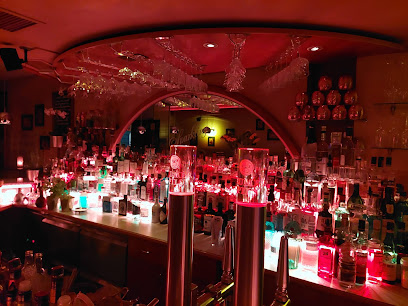
Sixty Twenty Bar und Cafe
Discover the vibrant Sixty Twenty Bar und Cafe in Innsbruck, where lively atmosphere meets delicious drinks and exciting nightlife.
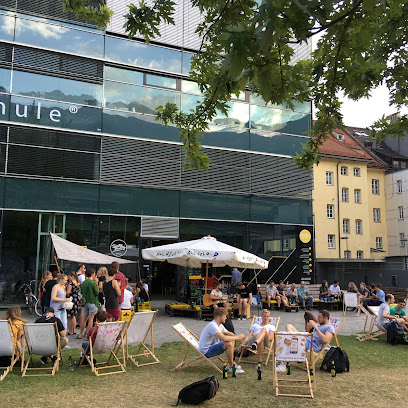
Cafe/Bar Wohnzimmer
Discover the perfect blend of cozy cafe vibes and vibrant nightlife at Cafe/Bar Wohnzimmer in Innsbruck, where live music and exquisite cocktails await.
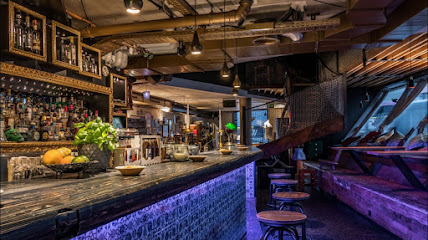
Zappa Music Bar
Experience the vibrant nightlife of Innsbruck at Zappa Music Bar, where music and socializing come together in a unique atmosphere.
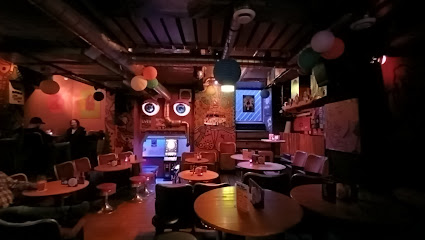
Dunlin Bar Innsbruck
Discover the lively Dunlin Bar in Innsbruck, where innovative cocktails and vibrant nightlife create unforgettable experiences in the heart of Austria.
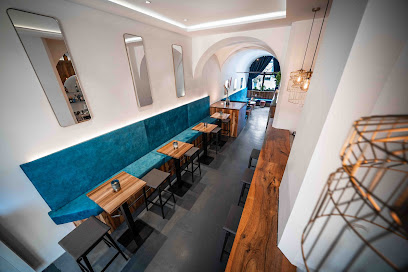
TnT Sportsbar - No bets, just fun
Experience the thrill of sports and camaraderie at TnT Sportsbar, Innsbruck's lively hub for entertainment and delicious drinks.
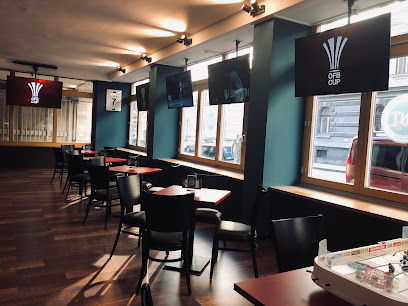
Blaue Brigitte
Experience the vibrant nightlife of Innsbruck at Blaue Brigitte, where exquisite drinks and stunning mountain views await.
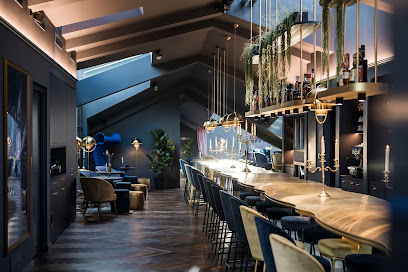
C.U. Cocktail Lounge
Discover the chic C.U. Cocktail Lounge in Innsbruck, where expertly crafted cocktails meet a stylish atmosphere for the perfect night out.
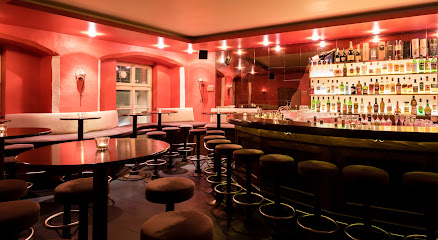
Bar Centrale
Discover the vibrant atmosphere of Bar Centrale in Innsbruck, blending coffee culture with lively nightlife in the heart of the city.
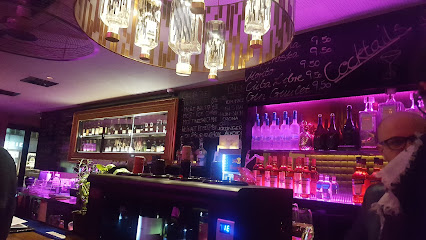
JIMMY’S INNSBRUCK
Experience vibrant nightlife at Jimmy’s Innsbruck, a lively bar with extensive drinks and a welcoming atmosphere for locals and tourists alike.
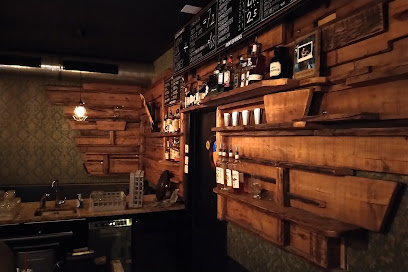
Cloud 9 - Iglu Bar Innsbruck
Discover Cloud 9 - Iglu Bar Innsbruck, where breathtaking mountain views meet a unique igloo bar experience in the heart of the Tyrolean Alps.
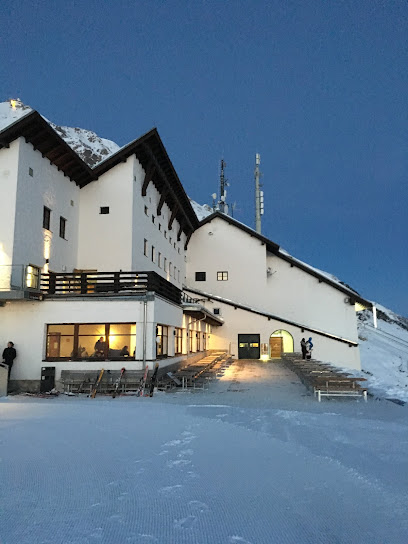
PM Innsbruck
Experience the vibrant nightlife of Innsbruck at PM Innsbruck, where creative cocktails meet a lively bar atmosphere.
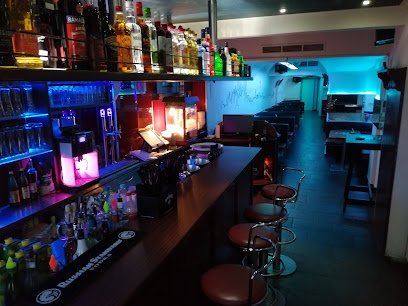
Local Phrases
-
- HelloHallo
[haˈlo] - GoodbyeAuf Wiedersehen
[aʊ̯f ˈviːdɐˌzeːən] - YesJa
[jaː] - NoNein
[naɪ̯n] - Please/You're welcomeBitte
[ˈbɪtə] - Thank youDanke
[ˈdaŋkə] - Excuse me/SorryEntschuldigung
[ɛntˈʃʊldɪɡʊŋ] - How are you?Wie geht es dir?
[viː ɡeːt ɛs diːɐ] - Fine. And you?Gut. Und dir?
[ɡuːt ʊnt diːɐ] - Do you speak English?Sprechen Sie Englisch?
[ˈʃprɛçən ziː ˈɛŋlɪʃ] - I don't understandIch verstehe nicht
[ɪç fɛɐˈʃteːə nɪçt]
- HelloHallo
-
- I'd like to see the menu, pleaseIch hätte gerne die Speisekarte, bitte
[ɪç ˈhɛtə ˈɡɛʁnə diː ˈʃpaɪ̯zəˌkaʁtə ˈbɪtə] - I don't eat meatIch esse kein Fleisch
[ɪç ˈɛsə kaɪ̯n flaɪ̯ʃ] - Cheers!Prost!
[pʁoːst] - I would like to pay, pleaseIch möchte bitte bezahlen
[ɪç mœxtə ˈbɪtə bəˈt͡saːlən]
- I'd like to see the menu, pleaseIch hätte gerne die Speisekarte, bitte
-
- Help!Hilfe!
[ˈhɪlfə] - Go away!Geh weg!
[ɡeː vɛk] - Call the Police!Rufen Sie die Polizei!
[ˈʁuːfən ziː diː pɔˈliːtsaɪ̯] - Call a doctor!Rufen Sie einen Arzt!
[ˈʁuːfən ziː ˈaɪ̯nən aʁt͡s] - I'm lostIch habe mich verirrt
[ɪç ˈhaːbə mɪç fɛˈʁɪʁt] - I'm illMir ist schlecht
[miːɐ ɪst ʃlɛçt]
- Help!Hilfe!
-
- I'd like to buy...Ich möchte kaufen...
[ɪç mœxtə ˈkaʊ̯fən] - I'm just lookingIch schaue nur
[ɪç ˈʃaʊ̯ə nuːɐ] - How much is it?Wie viel kostet das?
[viː fiːl ˈkɔstət das] - That's too expensiveDas ist zu teuer
[das ɪst tsuː ˈtɔʏ̯ɐ] - Can you lower the price?Können Sie den Preis senken?
[ˈkœnən ziː deːn pʁaɪ̯s ˈzɛŋkən]
- I'd like to buy...Ich möchte kaufen...
-
- What time is it?Wie spät ist es?
[viː ʃpɛːt ɪst ɛs] - It's one o'clockEs ist ein Uhr
[ɛs ɪst aɪ̯n ʔuːɐ] - Half past (10)Halb (zehn)
[halb (tseːn)] - MorningMorgen
[ˈmɔʁɡən] - AfternoonNachmittag
[ˈnaχmɪˌtaːk] - EveningAbend
[ˈaːbənt] - YesterdayGestern
[ˈɡɛstɐn] - TodayHeute
[ˈhɔʏ̯tə] - TomorrowMorgen
[ˈmɔʁɡən] - 1Eins
[aɪ̯ns] - 2Zwei
[tsvaɪ̯] - 3Drei
[dʁaɪ̯] - 4Vier
[fiːɐ] - 5Fünf
[fʏnf] - 6Sechs
[zɛks] - 7Sieben
[ˈziːbn̩] - 8Acht
[axt] - 9Neun
[nɔʏ̯n] - 10Zehn
[tseːn]
- What time is it?Wie spät ist es?
-
- Where's a/the...?Wo ist ein/der...?
[vo ɪst aɪ̯n/deːɐ] - What's the address?Was ist die Adresse?
[vas ɪst diː ˈaˌdʁɛsə] - Can you show me (on the map)?Können Sie mir das zeigen (auf der Karte)?
[ˈkœnən ziː miːɐ das ˈʦiːɡən (aʊ̯f deːɐ ˈkaʁtə)] - When's the next (bus)?Wann kommt der nächste (Bus)?
[van kɔmt deːɐ ˈnɛːxtə (bʊs)] - A ticket (to ....)Eine Fahrkarte (nach ....)
[ˈaɪ̯nə ˈfaːɐ̯kʰaʁtə (naχ ....)]
- Where's a/the...?Wo ist ein/der...?
History of Innsbruck
-
Innsbruck, the capital of Tyrol, was first established in the 12th century. Originally a site for a Roman fort named Veldidena, the area gradually grew into a significant settlement due to its strategic location along key trade routes. The city received its charter in 1239, marking its official founding and establishing its importance in the region.
-
One of Innsbruck's most iconic landmarks, the Golden Roof (Goldenes Dachl), was completed in 1500. Commissioned by Emperor Maximilian I, the structure features a balcony adorned with 2,657 fire-gilded copper tiles. It was built to commemorate his marriage to Bianca Maria Sforza and serves as a testament to the city's medieval prosperity and the emperor's influence.
-
The Habsburg dynasty played a crucial role in shaping Innsbruck's history. In 1420, Duke Frederick IV moved the Tyrolean court to Innsbruck, making it a political and cultural hub. The Habsburgs' patronage led to the construction of significant buildings, including the Hofburg Imperial Palace and the Hofkirche, showcasing Renaissance and Baroque architectural styles.
-
The Battle of Bergisel, fought in 1809, was a key event during the Tyrolean Rebellion against the French and Bavarian forces. Led by Andreas Hofer, Tyrolean insurgents fought to defend their homeland and maintain their independence. Although ultimately unsuccessful, the battle is an enduring symbol of local resistance and pride.
-
Innsbruck has twice hosted the Winter Olympics, first in 1964 and again in 1976. These events significantly boosted the city's international profile and tourism industry. Modern infrastructure developments, such as the Bergisel Ski Jump and the Olympiaworld sports complex, owe their origins to these Olympic games, cementing Innsbruck's reputation as a premier winter sports destination.
-
Innsbruck's cultural heritage is rich and diverse, with numerous festivals and events celebrating its history and traditions. The Innsbruck Festival of Early Music, held annually, attracts music enthusiasts from around the world. The Ambras Castle, with its extensive art and armor collection, and the Tyrolean State Museum, showcasing regional history and culture, are key cultural institutions that highlight Innsbruck's artistic and historical significance.
Innsbruck Essentials
-
Innsbruck is well-connected and accessible through various modes of transportation. The Innsbruck Airport (INN) is just 4 kilometers from the city center and offers flights to and from several European destinations. Alternatively, you can fly into Munich Airport (MUC) or Zurich Airport (ZRH) and take a train or bus to Innsbruck. The city is also accessible by train, with the Innsbruck Hauptbahnhof (main train station) serving as a major hub connected to various Austrian and European cities. For those driving, Innsbruck is accessible via the A12 and A13 motorways.
-
Innsbruck has an efficient public transportation system, including buses and trams operated by IVB (Innsbrucker Verkehrsbetriebe). Tickets can be purchased at ticket machines, online, or via the IVB app. For more flexibility, consider renting a bike through the city's bikeshare program or renting a car. Taxis are also readily available, albeit more expensive. The city is compact, making walking a convenient option for exploring the central areas.
-
The official currency in Austria is the Euro (EUR). Credit and debit cards are widely accepted in hotels, restaurants, and shops. However, it's advisable to carry some cash for smaller establishments and markets. ATMs are plentiful throughout the city, and currency exchange services are available at the airport, main train station, and various locations in the city center.
-
Innsbruck is generally a safe city for tourists. However, like any destination, it's important to stay vigilant. Avoid poorly lit areas at night and keep an eye on your belongings in crowded places such as public transport and popular tourist spots. Areas around the main train station can attract petty crime, so exercise caution. Always keep your valuables secure and be aware of your surroundings.
-
In case of emergency, dial 112 for immediate assistance. Innsbruck has several hospitals, including the University Hospital Innsbruck, which provides comprehensive medical services. Pharmacies are available throughout the city and can be identified by a green cross sign. It's recommended to have travel insurance that covers medical emergencies.
-
Fashion: Do dress appropriately for the weather and local customs. Innsbruck is a sporty city, so casual and outdoor wear is common. Avoid overly revealing clothing. Religion: Do respect religious sites, such as churches, by dressing modestly and keeping noise to a minimum. Public Transport: Do validate your ticket before boarding and offer your seat to elderly passengers. Don't eat or drink on public transport. Greetings: Do greet people with a friendly 'Grüß Gott' or a simple 'Hallo'. A handshake is also common. Eating & Drinking: Do try local specialties like Tiroler Gröstl and Kaiserschmarrn. Don't forget to tip, usually around 5-10% of the bill.
-
To experience Innsbruck like a local, visit the Markthalle for fresh produce and local delicacies. Spend an afternoon at the Hofgarten, a beautiful park where locals relax. For a unique experience, take a ride on the Nordkette cable car for stunning views of the city and surrounding Alps. Don't miss the opportunity to attend a traditional Tyrolean evening show featuring local music and dance. Engaging with locals and trying to speak a few German phrases can enhance your experience.
Trending Landmark in Innsbruck
-
Golden Roof
-
Alpenzoo Innsbruck - Tirol
-
Ambras Castle Innsbruck
-
Innsbrucker Hofgarten
-
Innsbrucker Nordkettenbahnen Betriebs GmbH (Nordkette)
-
Triumphpforte
-
Hafelekarspitze
-
Annasäule
-
Hofburg Innsbruck
-
Landhausplatz
-
Tirol Panorama and Kaiserjäger Museum
-
Congress Innsbruck
-
Dom St. Jakob
-
Altstadt Innsbruck
-
Court Church Innsbruck
Nearby Cities to Innsbruck
-
Things To Do in Kitzbühel
-
Things To Do in St. Anton am Arlberg
-
Things To Do in Munich
-
Things To Do in Zell am See
-
Things To Do in Dornbirn
-
Things To Do in Bregenz
-
Things To Do in Davos
-
Things To Do in Bad Gastein
-
Things To Do in Salzburg
-
Things To Do in Schellenberg
-
Things To Do in Ruggell
-
Things To Do in Mauren
-
Things To Do in Arosa
-
Things To Do in Triesenberg
-
Things To Do in Eschen
















